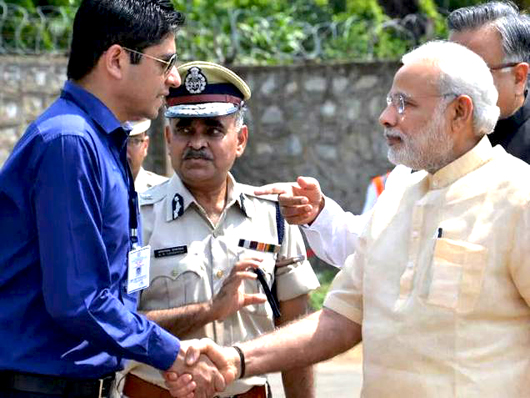New Delhi, Apr 22: The number of COVID-19 cases in India reached 20,471on Wednesday, with Maharashtra continuing to be the worst-hit state.
Out of the total number of cases, 15,859 are active cases, 3,959 cured or discharged and 652 deaths.
Maharashtra has reported the highest number of cases across the country, with the count at 5,221, followed by Delhi (2,156) and Gujarat (2,272). Maharashtra reported 251 deaths, the highest fatality rate than any other state.
Fresh cases were reported today from Kerala, Karnataka, Rajasthan and Kashmir among other states and UTs.
The Union Cabinet on Wednesday approved Rs 15,000 crore for 'India COVID-19 Emergency Response and Health System Preparedness Package'. The funds sanctioned will be utilised in three phases.
While Rs 7,774 crore has been provisioned for immediate COVID-19 emergency response, the rest would be used for medium-term support (1-4 years) to be provided under mission mode approach.
Briefing mediapersons about the package here on Wednesday, Union Minister Prakash Javadekar said the key objectives of the package include mounting emergency response to slow and limit COVID-19 in India through the development of diagnostics and COV1D-dedicated treatment facilities, centralised procurement of essential medical equipment and drugs required for treatment of infected patients, strengthen and build resilient national and state health systems to support prevention and preparedness for future disease outbreaks.
Javadekar said that no decision has been taken so far regarding the resumption of flight operations.
"No decision has been taken yet on the resumption of flight operations. An announcement will be made on time as to when it will resume," Javadekar told reporters.
Here's a quick read on the COVID-19 related updates:
1. Two Chinese manufactures of rapid antibody test, Guangzhou Wondfo Biotech Co. Ltd and Zhuhai Livzon Diagnostics Inc are now the subject of investigations by the Indian Council of Medical Research (ICMR) as the rapid testing antibody kits of these two companies delivered results with wide variations and low accuracy.
2. Rajasthan Health Minister Raghu Sharma said that 735 doctors have recently been recruited and posted to hospitals in the state.
3. The Employees Provident Fund Organisation (EPFO) has settled 10.02 lakh claims, including 6.06 lakh COVID-19 cases, under the Pradhan Mantri Garib Kalyan Yojana (PMGKY) in 15 working days.
4. Secretary of Overseas Indian Affairs in the Ministry of External Affairs, Vikas Swarup, interacted with envoys of nearly 30 Central European countries on Wednesday and shared thoughts on fighting COVID-19.
5. Taking cognisance of the need for essential services like plumbing during COVID 19 crisis, the Indian Plumbing Skills Council (IPSC) aligned to Skill India programme, under the aegis of the Ministry of Skill Development and Entrepreneurship (MSDE), has prepared a database of over 900 plumbers who are ready to provide their services during the lockdown period across the country.
6. Braving all odds, workers of the Accredited Social Health Activists (ASHA) are conducting door to door surveys in the Red Zones of Nagpur putting their lives at risk.
7. Aviation Minister Hardeep Puri on Wednesday said that Air India has lifted about 300 tonnes of essential medical cargo so far this month through China-India aerobridge. It is planned that Air India along with SpiceJet and Blue Dart will airlift another 220 tonnes of this critical cargo in the next three days.
8. Ministry of Railways has offered to supply 2.6 lakh meals daily from various railway kitchens wherever the district administration is willing and able to pick up cooked meals and distribute among the needy. This has been communicated to district authorities all over the country.
9. Uttarakhand Chief Minister Trivendra Singh Rawat on Wednesday said that the state's COVID-19 doubling rate stands at 26.6 days and Uttarakhand ranks third in preventing coronavirus infection.
10. The Central government has brought an ordinance to end violence against health workers, making it a cognizable, non-bailable offence with imprisonment up to seven years for those found guilty.






Comments
Add new comment